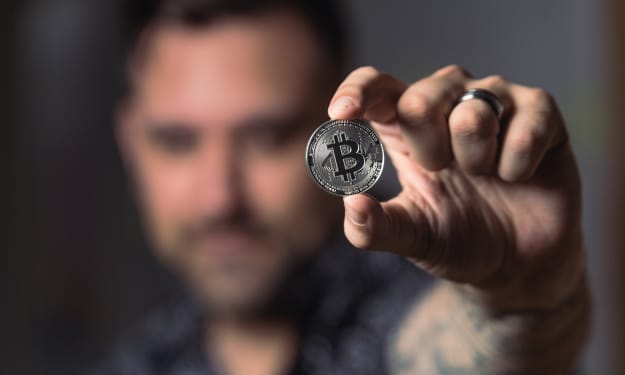Exploring the Security of Cryptocurrencies: Risks and Rewards
Is Crypto is a Secure Currency

Cryptocurrencies have taken the world by storm, offering a new and exciting way to store and transfer value. With their decentralized structure and cryptographic algorithms, cryptocurrencies offer potential benefits over traditional fiat currencies. However, the security of cryptocurrencies is often called into question, with concerns about hacking, fraud, and lack of regulation. In this article, we will delve into the security of cryptocurrencies, exploring both the risks and rewards of this digital form of currency. Whether you're an experienced investor or new to the world of crypto, this article will provide valuable insight into the security of cryptocurrencies.
The decentralized nature of cryptocurrencies makes them inherently secure. Unlike traditional fiat currencies, which are managed by central banks, cryptocurrencies operate on a decentralized network of computers called a blockchain. This means that there is no single point of failure that can be exploited by hackers. Additionally, transactions on a blockchain are verified and recorded by multiple nodes on the network, making it nearly impossible to alter or manipulate the ledger without being detected.
The use of encryption and cryptographic algorithms also helps to ensure the security of cryptocurrencies. Transactions are encrypted and signed with digital signatures, making it difficult for hackers to tamper with the information. This helps to prevent fraud and counterfeiting, which are common problems in traditional fiat currencies.
However, despite these security measures, cryptocurrencies are still vulnerable to hacking and other forms of cybercrime. For example, exchanges where cryptocurrencies are bought and sold have been the target of numerous hacking attacks, resulting in the loss of millions of dollars worth of digital currency. Additionally, individual wallets can be hacked if the user does not take adequate security precautions, such as using a strong password and enabling two-factor authentication.
Another issue with cryptocurrencies is their lack of regulation. Unlike traditional fiat currencies, which are subject to government regulation and oversight, cryptocurrencies operate in a largely unregulated environment. This means that there is no central authority to hold accountable in the event of a security breach or theft. This lack of regulation also makes it easier for criminals to use cryptocurrencies for illegal activities, such as money laundering or funding terrorism.
It’s also worth noting that the value of cryptocurrencies can be extremely volatile. This means that an investment in a cryptocurrency can lose significant value in a short period of time. This can make them less secure than traditional currencies, as their value is subject to market conditions and speculation. Additionally, there is no guarantee that a cryptocurrency will maintain its value over the long term, and some have even become worthless due to a lack of demand or technological issues.
It's important to remember that the security of cryptocurrencies also depends on the specific type of cryptocurrency in question. For example, some cryptocurrencies, such as Bitcoin and Ethereum, have been around for many years and have a proven track record of security. On the other hand, newer cryptocurrencies may have security vulnerabilities that have not yet been discovered.
One way to increase the security of cryptocurrencies is to use a hardware wallet. This is a physical device that stores your digital currency offline, making it much more difficult for hackers to access your funds. Hardware wallets can be expensive, but they offer an added layer of security that can be worth the investment for those who hold large amounts of cryptocurrency.
Another way to increase the security of cryptocurrencies is to store your funds in a multi-sig wallet. This type of wallet requires multiple signatures or approvals before a transaction can be completed, making it much more difficult for a single person to steal your funds. Multi-sig wallets can also be used to manage funds in a group setting, such as a business or investment group.
In addition to taking steps to increase the security of your cryptocurrency holdings, it’s also important to be aware of the potential risks associated with the digital currency. For example, some countries have banned the use of cryptocurrencies, making it illegal to buy, sell, or use them. Additionally, there is always a risk that a new, more secure cryptocurrency will emerge, making your investment in an older cryptocurrency worthless.
Despite these challenges, many people believe that cryptocurrencies have the potential to become a more secure form of currency in the future. As blockchain technology continues to advance and more people become familiar with cryptocurrencies, it’s likely that security measures will become more effective and widespread. Additionally, increased regulation and oversight may help to mitigate the risks associated with cryptocurrencies and make them a more secure option for those looking to invest.
In conclusion, while cryptocurrencies are not perfect, they do offer a number of security benefits compared to traditional fiat currencies. However, it’s important to be aware of the potential risks and take steps to protect your investments. With the right approach and a willingness to educate yourself about the technology, cryptocurrencies can be a secure and potentially profitable investment.
About the Creator
Enjoyed the story? Support the Creator.
Subscribe for free to receive all their stories in your feed. You could also pledge your support or give them a one-off tip, letting them know you appreciate their work.





Comments
There are no comments for this story
Be the first to respond and start the conversation.